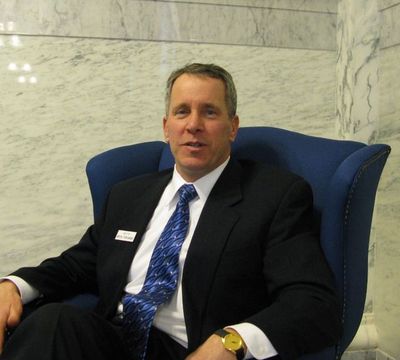Idaho lawmakers grapple with ethics reforms

BOISE - When Idaho Sen. Mitch Toryanski was a West Point cadet, the definition of ethics was clear: A cadet will not lie, cheat, steal, nor tolerate those who do. The penalty was expulsion.
Now that he’s a state senator serving on the Idaho Legislature’s bipartisan working group on ethics, it’s a bit more complex. “What kind of system do we want to ensure integrity?” Toryanski asked. “I don’t think anyone knows what we’re going to do, but hey, the conversation’s started.”
The working group, with four senators and four representatives, half from each party, has been meeting twice a week for the past four weeks to try to find common ground on how to establish an independent ethics commission for Idaho, something 41 states have but Idaho lacks.
Legislative leaders have also expressed hope that the group can open the way for debate on other ethics reforms this year, including Idaho’s first-ever financial disclosure requirements for public officials; a “revolving-door” law requiring a year’s break before lawmakers or other public officials could go directly into lobbying; and a whistleblower hotline for public employees to call in complaints.
“Most of this first part has just been doing research,” said Sen. Michelle Stennett, D-Ketchum. “What would fit in the statutes and the culture of Idaho? And what do we have in place now?”
Said Rep. Vito Barbieri, R-Dalton Gardens, “We’ve been able to review other states and get an idea of what they’re doing. … We’re about halfway through the process, I think. We’re just about done with the fact-gathering.”
House Minority Leader John Rusche, D-Lewiston, said, “We were real encouraged with the speaker and pro-tem saying that they recognize (the need) and would work to a result this year. We still believe that can happen.” He added, “We were hoping for faster progress,” but said, “We have full confidence that our workgroup members can develop meaningful ethics reform this session.”
Most of the working group members agreed.
“I think we’re making good progress,” said Sen. Dean Mortimer, R-Idaho Falls. “We have been listening and being educated. I think we’ve had a good flow of dialogue.” Asked if he thinks anything will come out of the effort this year, Mortimer responded, “Absolutely.”
The eight-member group has been meeting for at least an hour twice a week, late on Wednesday afternoons and early on Friday mornings. Members have taken turns chairing the meetings, and everyone’s getting a chance to lead.
“We all consider ourselves equal members,” Stennett said. “Because of that … it probably isn’t going to go as fast as everyone probably would like it to.”
Rep. Phylis King, D-Boise, said, “We have agreed on a few things,” as far as how best to structure an independent ethics commission.
Barbieri said, “I think we needed to examine it, given the last couple of years.” But, he said, “The question of whether Idaho can afford a full-on new bureaucracy is pressing on me. … I don’t think it’s necessary for us to have some consensus or agree. I think the responsibility is to gather as much information as we can and get it back to the leadership, and see how the leadership wants to handle it.”
Sen. Dan Schmidt, D-Moscow, said, “I think we’re getting to know pretty quickly where our lines are drawn.”
Ethics reform was a high-profile issue at the start of this year’s Idaho legislative session, but has moved largely under the radar as the working group has held its weeks of discussions.
Meanwhile, some, including the Idaho Democratic Party, have continued to sharply criticize lawmakers for not having yet enacted ethics reforms. “It does complicate things,” said Rep. Cliff Bayer, R-Boise. “That … sure doesn’t help with any kind of constructive process, while we’re trying to conduct business.”
Toryanski said even outside the working group, “Ideas are being floated - nobody’s waiting on this group to come up with something.”
Nine bills already have been introduced this session proposing ethics reforms; six of those were personal bills from Democratic lawmakers on everything from financial disclosure to revolving-door laws to campaign finances. Others are in the works.
Rep. Cherie Buckner-Webb said her background is in the corporate world, so she appreciates taking time for “due diligence.” She said, “I am very hopeful that the process will yield great results. The good thing about the process is it’s looking forward - it’s looking for how we’re going to hold ourselves accountable in the future and regain, where it’s lost, the trust of our constituents.”
King said when the working group started meeting, House Speaker Lawerence Denney told her he hoped it would result in an independent ethics commission bill that he and other legislative leaders of both parties could cosponsor. “I’m an optimist - I’m a Democrat in Idaho, I’m an optimist,” King said. “I think we’re going to have a bill.”